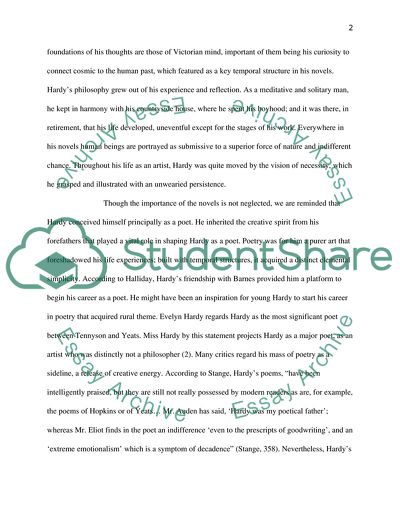Cite this document
(Thomas Hardy as a Novelist with a Poetic Vision Essay Example | Topics and Well Written Essays - 1500 words, n.d.)
Thomas Hardy as a Novelist with a Poetic Vision Essay Example | Topics and Well Written Essays - 1500 words. https://studentshare.org/literature/1779292-author-thomas-hardy
Thomas Hardy as a Novelist with a Poetic Vision Essay Example | Topics and Well Written Essays - 1500 words. https://studentshare.org/literature/1779292-author-thomas-hardy
(Thomas Hardy As a Novelist With a Poetic Vision Essay Example | Topics and Well Written Essays - 1500 Words)
Thomas Hardy As a Novelist With a Poetic Vision Essay Example | Topics and Well Written Essays - 1500 Words. https://studentshare.org/literature/1779292-author-thomas-hardy.
Thomas Hardy As a Novelist With a Poetic Vision Essay Example | Topics and Well Written Essays - 1500 Words. https://studentshare.org/literature/1779292-author-thomas-hardy.
“Thomas Hardy As a Novelist With a Poetic Vision Essay Example | Topics and Well Written Essays - 1500 Words”. https://studentshare.org/literature/1779292-author-thomas-hardy.


